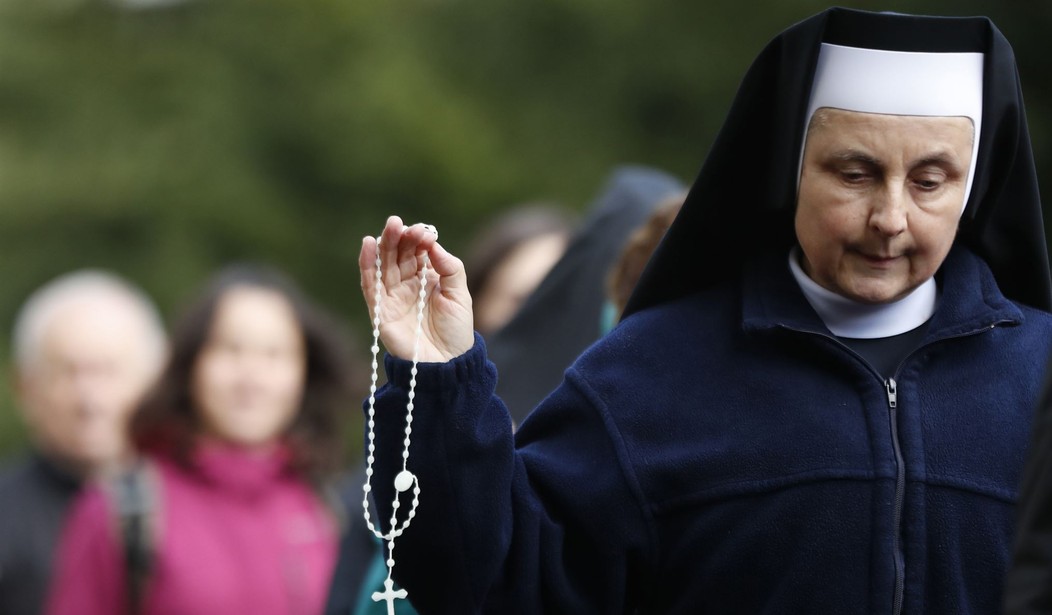Americans are less religious than they were a generation ago and the latest research by Gallup shows this trend is not abating. Earlier this month, Gallup reported that the number of Americans who believe in God fell to 74% this year compared to 90% in 2001. Similarly precipitous declines were reported among people who believe in Heaven, angels, Hell, and the devil.
The reasons for people ceasing to believe in God vary. A canvas of Buzzfeed readers shows that most involve bad things happening to good people, church teachings against certain behaviors, historical bad conduct by religions or people of faith, and lack of evidence of God. But serious researchers believe this decline in belief in God involves something bigger than personal circumstances or events in individual lives.
According to Lancaster University Professor Linda Woodhead, “The main reason for declining belief is that fewer people are enculturated and socialised into belief. They’re not brought up with the ‘plausibility structures’ (the wider sociocultural norms and frameworks of meaning) that are found in more religious societies.” Woodhead bluntly added, “People who believe in God often worry about being viewed as weird or unintelligent.”
These are not unreasonable conclusions but they beg the question of why fewer Americans are socially and culturally influenced to believe in God. What is fueling this dynamic? A prime suspect is our education establishment. A 2017 report by Pew Research found that, “The answer to the question of whether more education is correlated with less religion appears to be yes.”
Pew’s more granular data show that, “Among all U.S. adults, college graduates are considerably less likely than those who have less education to say religion is ‘very important’ in their lives: Fewer than half of college graduates (46%) say this, compared with nearly six-in-ten of those with no more than a high school education (58%).”
Recommended
Correlation doesn’t equal causation but Lyman Stone with the American Enterprise Institute tends to concur, and adds a layer of context to those observations. Stone’s 2020 analysis of the decline of American religiosity theorizes that a, “changing legal and policy environment may be the cause of declining religiosity.”
Stone explains that, “Expansions in government service provision and especially increasingly secularized government control of education significantly drive secularization and can account for virtually the entire increase in secularization around the developed world.” Stone adds the caveat, “It is not educational attainment per se that reduces religiosity, but government control of education and, to a lesser extent, government support for retirement.”
This secularization can be seen far afield from our shores. The Centre for Economic Policy Research, a 40-year-old European think tank, issued a report in March, 2022, showing that in Germany, “Abolishing compulsory religious education significantly decreased the religiosity of affected students in adulthood.” The CEPR report concluded, “Individuals who entered school after the reform report significantly lower levels of religiosity.”
If children are not learning about religion in school, they must be learning something else. Writing for National Review, Cameron Hilditch notes that, “Children learn more at school than reading, writing, and arithmetic. They imbibe a whole set of implied assumptions about what’s important in life.” Hilditch postulates on the impact of an exclusively secular education writing, “By excluding religious instruction from public schools, the government-run education system tacitly teaches students that religious commitments are not a first-order priority in life. Faith in God becomes a sort of optional weekend hobby akin to playing tennis or video games.”
The Cato Institute’s Neal McCluskey explored the issue in a Forbes column and proposed a solution for what he called the, “legally-mandated second-class citizenship,” imposed on religious families by the education establishment. “School choice: public education, not just public schooling. Let people choose schools without sacrificing their tax dollars to institutions that teach things they deem unacceptable.” (italic in original).
McCluskey’s remedy might actually bring about a two-fold benefit to children, families and society at large by increasing religiosity and academic achievement. University of Texas-Austin researcher Charles Stokes found that, “Compared to students who claim no religious affiliation, both Catholic and mainline Protestant students have better odds of graduating,” high school.
Stokes then examined the relationship between parental religiosity and achievement. “Students whose parents are more religious reap greater educational benefits compared to those students whose parents are less religious,” Stokes wrote. “When parent and student participate together in the religious community, the educational payoff is even higher.”
It’s easy to take potshots at government schools, teacher unions, and the insufferably woke academics who infest higher education, and some of those potshots are well deserved. But as adults, we must understand our individual responsibilities. When government and its institutions give short shrift to religion, it’s incumbent on us to make sure our children are imbued with a sense of importance of both religiosity and academic excellence.
























Join the conversation as a VIP Member